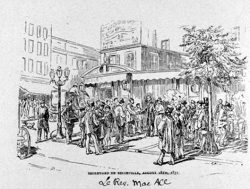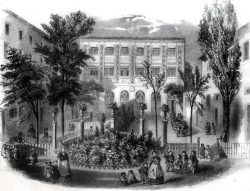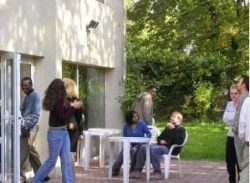The Evangelical Churches
The existence of Evangelical Churches in France goes back to the beginning of the XIXth century. There are at present 1850 Churches with 350.000 members and there are about 200 million Protestant Evangelicals in the world (this is not counting the Pentecostals). In the last twenty years the Protestant Evangelical movement has been expanding throughout the world, in Central America, South America, Asia and especially in China.
How does one identify a Protestant Evangelical ?
It is important to remember that Protestantism has always been rooted in Scripture, so every Protestant Church is necessarily Evangelical.
From the XVIth century onwards, personal commitment became a major element in some movements, especially in the Anabaptist Church. (anabaptist means “someone who rebaptises”), which is a “professing” Church that baptizes adults. The Anabaptist movement expanded quickly and gradually merged with Mennonism. Its theologian and founder was the Dutchman Menno Simonz (1496-1561).
But it is especially at the beginning of the XIXth century, at the time of the Revival (1820-1870), that the term “evangelical” took on a special meaning. It is to be noted that the Revival movement was fundamental in the re-building of French Protestantism after previous centuries of difficulty. It consisted of a militant remobilisation of all Protestants, with great emphasis on Biblical authority and personal conversion.
At present, the Evangelical Churches, who are reorganizing themselves, are governed by four basic principles :
- The Bible is infallible and the only source of authority. In their approach to the Scriptures, the Protestant Evangelicals have a fairly orthodox attitude, that is to say, they think that the Bible is the fundamental historic revelation of God.
- The Cross is the key element of their faith : it is because of Christ’s sacrifice on the cross that man’s sins have been forgiven once and for all.
- Conversion or “being born again” : one has to have a personal relationship with Christ in order to become a Christian, and as far as possible the Christian reads the Scriptures himself, with a minimum of guidance from others. One does not become a church member at birth, but only by one’s own profession of faith. It is important for evangelicals to have freedom of religious belief and personal commitment to Christ.
- An active commitment to witness to their faith and spread the good news of the Scriptures. Their identity is based on a common faith – they aim at building up a
- “Professing” Church. Evangelical movements and charities are deeply involved in social work.
A history of the Evangelical Church
In 1846 the Evangelical Alliance was established in London. Its aim was to gather together all evangelicals regardless of their denomination or church. It had branches in France where it set up the Alliance Evangélique Française (French Evangelical Alliance).
The Baptists and Methodists have been established in France since the beginning of the XIXth century.
In 1849, there was a “libriste” schism, resulting in the Union des Eglises Evangéliques de France (Union of French Evangelical Churches), commonly known as the Eglises Libres (Free Churches), that is to say “free from any control by the State and not part of the Concordat agreement”.
At the beginning of the XXth century, the Evangelicals worked at setting up a common structure and training centers :
- In 1921, the Institut Biblique de Nogent-sur-Marne (Biblical Institute of Nogent-sur-Marne) was established. This was an important step forward because it was the first Protestant Evangelical permanent training centre to be open to all evangelicals. What’s more, it is in close contact with other Protestant Evangelicals in Switzerland, Holland, England and America.
- The first Evangelical Faculty of Theology was set up in Aix-en-Provence in 1939.
- In 1965, the Faculté Libre de Théologie Evangélique de Vaux-sur-Seine (Independent Faculty of Evangelical Theology at Vaux sur Seine) was established, which worked together with Aix quite successfully.
- In 1969 the Evangelical Churches formed a federation, the Fédération Evangélique de France (French Evangelical Federation), which included 350 groupings and 25.000 members.
- Since 2001, the Conseil National des Evangéliques de France (CNEF) (National Evangelical Council of France) has grouped together all the different persuasions covered under the “evangelical” banner. It is a kind of “think-tank” where the main evangelical denominations can dialogue with each other.
The development of Evangelical Churches
Today, the Protestant Evangelical movement is very popular and includes many different traditions.
There are about fifty evangelical denominations in France and around 1800 local Churches, of which more than 3000 are independent (about 350 000 members).
Since 1970 ethnic Evangelical Churches have proved extremely successful. They are a new phenomenon and strengthen the community spirit. Even in 1990 there were already about 300 African Evangelical Churches.
It is the aim of the Evangelical Churches to reach as many people as possible, to make themselves known, to spread their ideas. As part of this outreach, they have set up a real literary industry, producing books, magazines and Bible studies ; they also organize many concerts.
The Evangelical Churches do not all share the same expression of faith. On the one hand, there are the “classical” evangelicals and on the other the “charismatic” tendency. They differ particularly in their worship and the importance they attach to the Holy Spirit.
The main evangelical Churches in France are the Baptists, the Methodists and the Plymouth Brethren, who are grouped together in various different denominations of which the most important are :
- FEEB : Fédération des églises évangéliques baptistes (Federation of Evangelical Baptist Churches) : 128 churches ;
- CAEF : communautés et assemblées évangéliques de France : 109 churches ;
- Darbists (Plymouth Brethren) : 105 churches ;
- CEBI : communion évangélique de baptistes indépendants ; 85 churches ;
- FEPEF : Fédération des Eglises du Plein Evangile de France : 61 churches ;
- FM : France mission : 51 churches ;
- EREI : Eglises réformées évangéliques indépendantes : 60 churches ;
- UEEL : union des Eglises évangéliques libres : 54 churches ;
- AEEBLF : Association évangélique d’Eglises baptistes de langue française : 45 Churches ;
- FEM : Fédération Evangélique Missionnaire : 30 Churches.
Associated tours
-
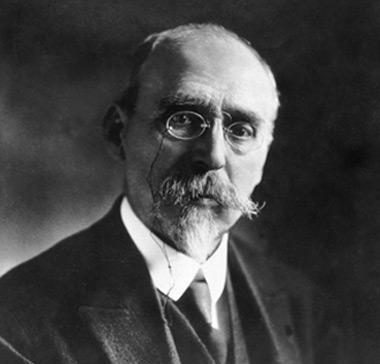
Protestantism in the XXth century
The law of 9th December 1905 separating the Churches from the State guaranteed the freedom of public worship for the Reformed Church and a legal framework. Hardly surprisingly, most Protestants...
Associated notes
-
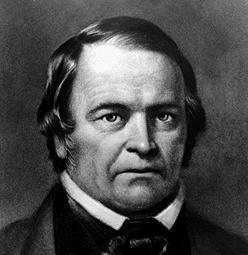
The Seventh Day Adventist Church
The Seventh day adventist Church has its roots in the Reformation movement of the XVIth century and the Revival movement of the XIXth century ; the latter being the stronger influence.... -
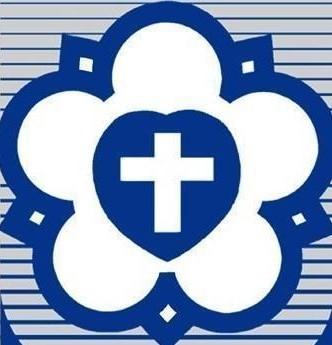
The Evangelical Lutheran Church of France
In 1808, quite a large Lutheran community in Paris consisting of foreigners became a Church which was connected to Strasbourg. The Evangelical Lutheran Church of France was established in France... -
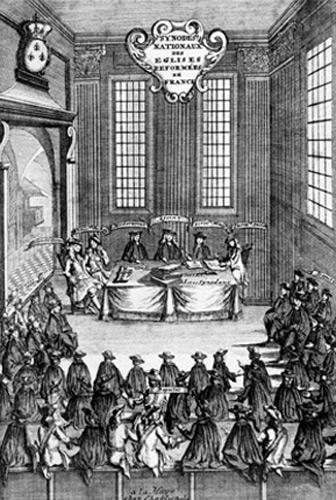
French Reformed Church
The French Reformed Church (Eglise Réformée de France) was founded in 1938 ; its origins go back to the XVIth century to the reformed Churches which were set up by Jean... -
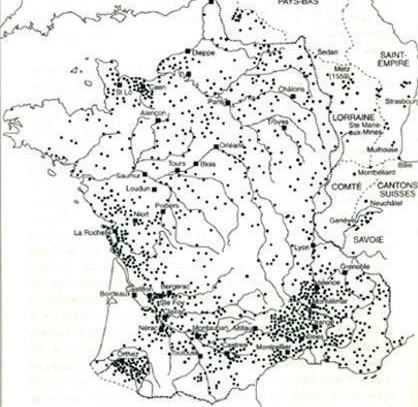
Church organisation
Initially, Reformed Churches were not institutionalised, but as from 1555, throughout Kingdom of France, they progressively conformed to the pattern Calvin had organised in Geneva. -
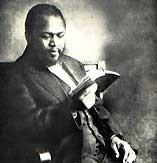
The Pentecostal Churches
The Pentecostal movement is the most successful Protestant denomination in the world today, with about 150 million members. Its presence in France goes back to the 1930s and its main... -

The Mennonite Churches
The Mennonite Churches go back to the radical Reform movement of the XVIth century ; they were persecuted in Switzerland, then settled along the Rhine valley. In the XVIIth century there was a... -

The Baptist Churches
The Baptist Churches have been established in France since the beginning of the XXth century in certain regions (mainly in the North), but with the help of the English and... -

The Protestant Churches of Alsace and Lorraine (UEPAL, EPCAAL and EPRAL)
The Lutheran and Reformed Churches of Alsace and Moselle have been working towards unity for a long time. These efforts finally met with success when the Union des Eglises Protestantes... -

The Reformed Churches in France
In 1559, the Paris Synod organised the French Reformed Churches according to Jean Calvin’s guidelines.

